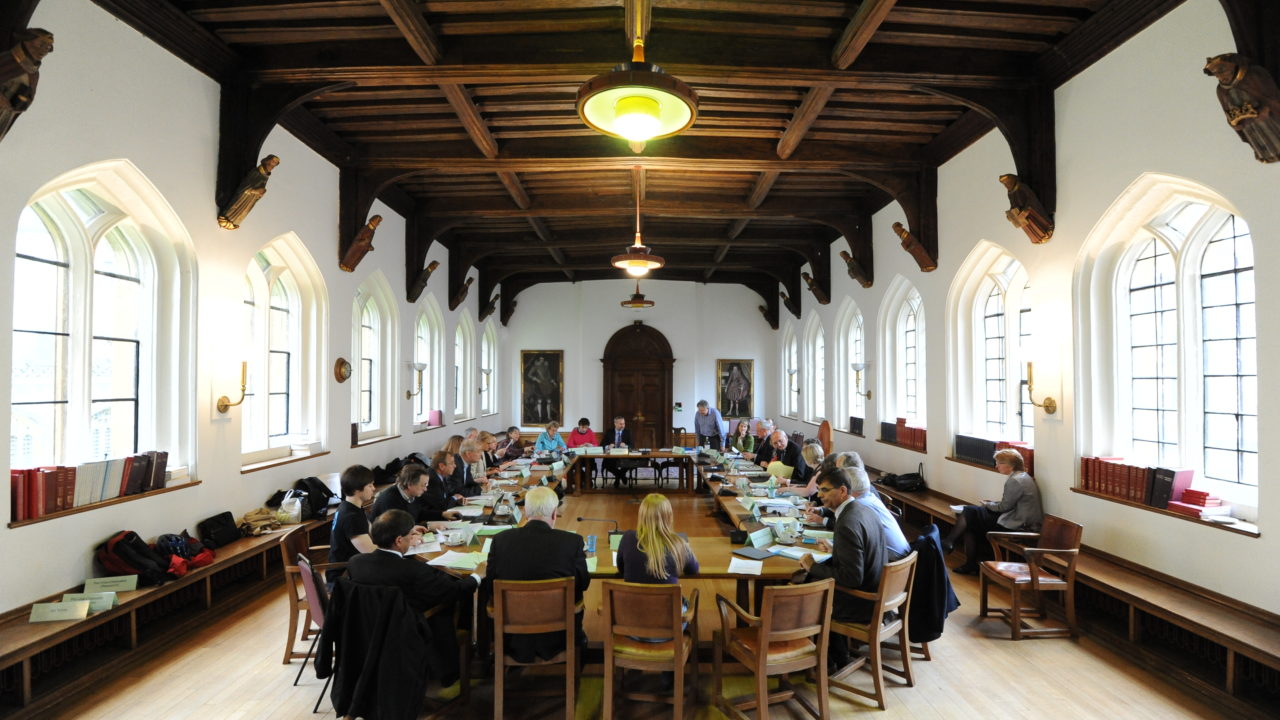Strength in Diversity
Liz Winders, Secretary and Registrar at Sheffield Hallam University and Chair of the AHUA reflects on this year's Spring Conference in Cambridge, and the key themes that emerged during the event.


When I reflect on this year’s Spring conference in Cambridge, I am reminded of a recent, very enjoyable production of Samuel Beckett’s landmark existential play “Waiting for Godot” that I saw at the Sheffield Crucible.
Like the characters in the play, we are waiting. Waiting for a Higher Education Bill, waiting for the TEF, waiting for the new quality assessment approach to start, waiting to see how research may be organised, funded and assessed in the future, waiting to see if we will be in or out of the EU.
At one point in “Waiting for Godot” the two principal characters say:
VLADIMIR
Well? What do we do?
ESTRAGON
Don’t let’s do anything. It’s safer.
Their fear and uncertainty result in inaction.
Uncertainty was mentioned often at the conference but, unlike Didi and Estragon, the excellent conference sessions were most often a call to action. The topics were wide-ranging and relevant to the future for universities, the risks and issues and our own professional challenges. We were presented with UK and global perspectives.
Sessions included: regional collaboration and devolution; cyber security; international strategies; academic governance; reconfiguring the administration; and, of course, what would emerge from the Green Paper and the new quality assessment approach. The specialist expertise of our sponsors gave us valuable insights into a number of practical issues.
Our two keynote speakers also gave us much food for thought.
Opening the conference, Professor Leszek Borysiewicz, Vice-Chancellor of the University of Cambridge, spoke about institutions staying true to their mission so that they deliver effectively, telling us that diversity matters. He also commented that the sector needs courage and leadership to speak unpalatable truths and safeguard our contributions including freedom of speech. He warned of the potentially devastating impact that ‘Brexit’ could have on the sector. His words, spoken with thoughtful conviction, reminded us of why we must be successful in meeting the challenges ahead.
Nicola Dandridge, Chief Executive of Universities UK, shed light on the developments currently in play as a result of Government policies for HE and she summed up with five key points:
- the need for more collaboration in the sector and a stronger narrative about the principles and priorities we believe are important;
- the EU referendum will dominate politics;
- when the HE Bill is published, we must coalesce around our priorities and be constructive;
- we have not yet felt the real effect of HE funding cuts and more are likely:
- it will be important for HE organisations to hold together.
So, the message from both these speakers, and much else, was “Hold together, while recognising and valuing our diversity”. Quite a challenge!
Coincidentally this has a lot in common with what I spoke about as your new Chair when outlining the priorities for AHUA during my term of office. I also took up the theme of diversity and the priorities I highlighted were:
– continuity around the legacies of previous Chairs: the credibility and high standing of AHUA as the ‘go to’ organisation for expert, balanced inputs from a sector and UK-wide perspective; our successful development programmes, which we will aim to develop further by exploring links with other professional associations in the sector; and improving and updating our communications, including the web site and use of social media;
– AHUA’s strength lies in reflecting the diversity of the sector and we draw on the broad-based knowledge and experience of our members in different institutions and different parts of the UK. We will aim to develop and reinforce our diversity in a number of ways:
- in our own leadership and in who represents us in the work that AHUA does in the sector;
- in the characteristics of our members: we cannot control who institutions appoint as AHUA members, but we wish to understand and monitor the diversity of our members’ characteristics and encourage diversity where we can;
- in the breadth of our membership: we are a more open membership organisation that some in the sector and we will welcome new members who support our values and objectives;
- in our practice: by learning from the best of emerging practice and combining it with our accumulated experience of what works and what is important we will be in a strong position to continue to build AHUA’s standing and ensure the future success of our institutions and the sector.
My final thoughts about this year’s conference are warm ones. We enjoyed many of the delights of Cambridge, thanks to the care and thought put in by Jonathan as our host. We also took away the benefits of having shared thoughts and experiences with colleagues in a supportive and companionable spirit. Demanding times may lie ahead, but the strength we derive from being able to work together in this way is our greatest asset.